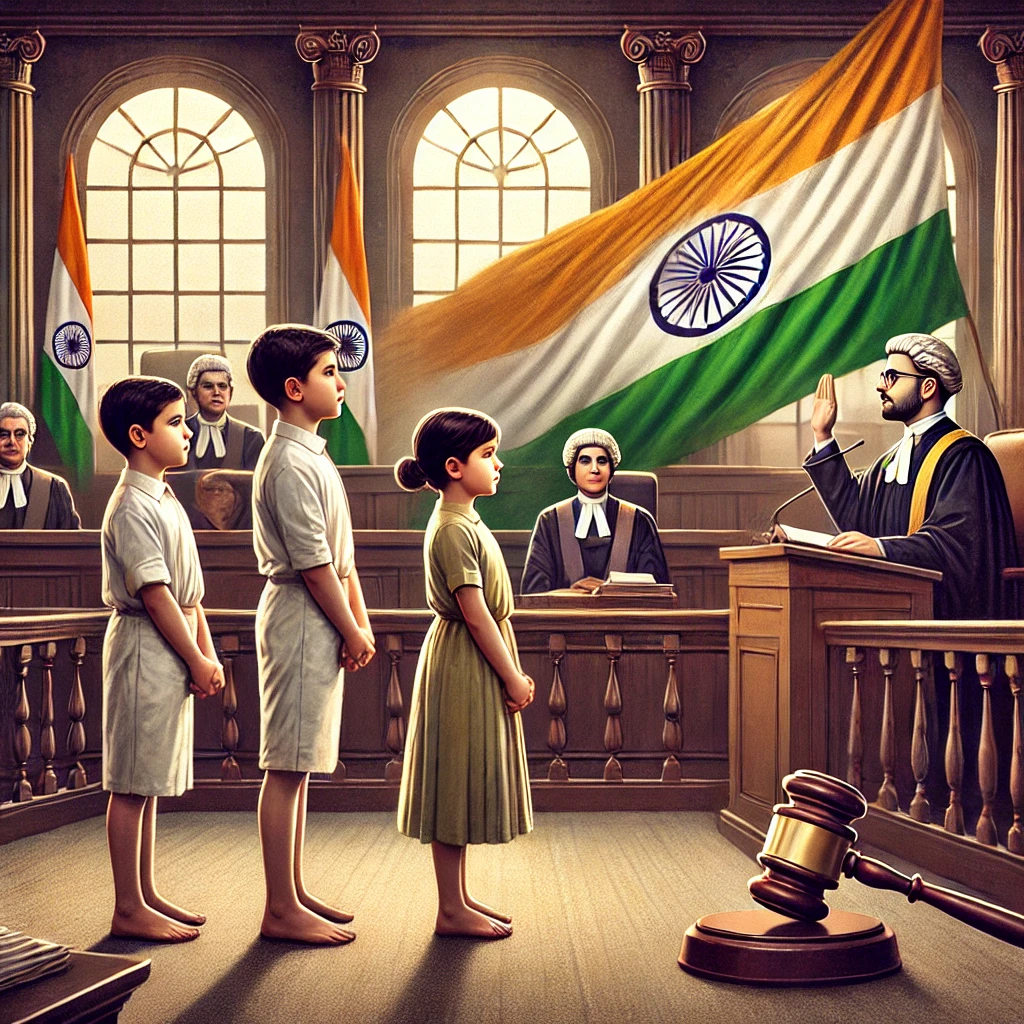Bijoe Emmanuel v. State of Kerala (1986)
Background: Three siblings—Bijoe, Binu, and Bindu Emmanuel—were expelled from a school in Kerala for not singing the national anthem (Jana Gana Mana) during the school assembly. The children, belonging to the Jehovah’s Witnesses faith, stood respectfully during the anthem but did not sing it, citing religious beliefs. Key Issue: Whether the expulsion of the students for not singing the national anthem violated their fundamental rights under the Indian Constitution, specifically: Article 19(1)(a) – Freedom of speech and expression. Article 25(1) – Freedom of conscience and free profession, practice, and propagation of religion. Arguments: State’s Argument: The State of Kerala contended that singing the national anthem was a fundamental duty and a sign of respect towards the nation. Petitioners’ Argument: The children argued that their faith did not permit them to sing the anthem, although they stood respectfully while it was being played. Supreme Court’s Observations: The Court recognized the children’s right to freedom of speech and expression, which includes the freedom not to sing. It emphasized that the children’s respectful silence during the anthem indicated that they did not disrespect the national anthem. The Court also highlighted that Article 25 protects the freedom to practice one’s religion, and coercing the children to sing would violate this right. Judgment: The Supreme Court ruled in favor of the Emmanuel siblings, holding that their expulsion violated their fundamental rights under Article 19(1)(a) and Article 25. It was stated that no constitutional law requires citizens to sing the national anthem; standing in respect suffices. Key Takeaways: This case established that freedom of expression includes the freedom to remain silent. It reinforced the principle that personal beliefs and conscience should be respected, as long as they do not disturb public order. The judgment emphasized tolerance and respect for diverse beliefs, shaping the interpretation of religious freedom in India. Impact: The decision is a landmark in upholding individual rights over forced conformity. It set a precedent for balancing national pride with personal beliefs, highlighting that true patriotism respects diversity and individual rights. Conclusion: The Bijoe Emmanuel case is a reminder that the Indian Constitution protects the rights of individuals to express their beliefs freely, ensuring that faith and conscience are not compromised in the name of nationalism.

